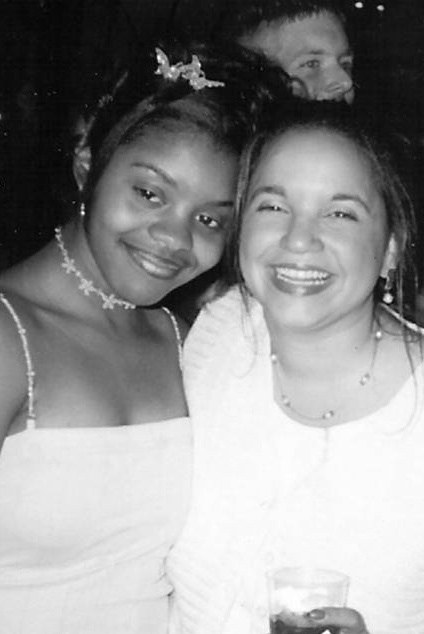This week, I am sharing an essay I wrote in the days just before leaving for Ethiopia six months ago. It’s a beginning, really, but as I was reflecting on our six months home, I was reminded of these early thoughts I had begun piecing together and decided to dust them off and share them here. I have divided the piece into 4 parts. You can read Part 1 here and Part 2 here. Here’s Part 3.
Once, in my middle school hallway, a girl whose locker was next to mine insisted that I tell her whether or not my mama was white and my daddy black.
“I’m Puerto Rican,” I explained to her, and she seemed put out with my answer. It was South Carolina in the mid-1980s. Race mattered as much in friendship as kindness and decency.
“You gotta be one or the other, white or black. I’m just gonna call you white ‘cause you’re smart.”
That was it. She closed her locker, walked off happy, and later asked me to spend the night. Even then, so young, I knew that question was loaded with so much more. Yes, racially, I was white. I understood that even then. But culturally I was not just white (no one really is, are they?) and to be her friend, I would have to be someone other than who I was.
“I can’t,” I told her.
I was groped on my way onto the school bus each day; boys telling me their uncles loved Latinas while I pushed their hands away and fought back tears. Some days, it was too much, and I just missed the bus on purpose. When I wasn’t wanted for my Latinidad, I was hated for it, spit at and cursed and patronized for being that which was different from them.
All of this made me strong and certain, self-sufficient and careful, and I worked hard to protect my parents from these elements of America I was experiencing. I wanted them to feel satisfied with their decision to stay in the States. I wanted to keep the suitcases from coming off the shelves, the For Sale signs out of the yard. I wanted America, the only home that I could remember, despite the fact that not all of her people wanted me, so I learned to protect my parents from what no one wanted to believe could happen here. But there was something else I embraced in this experience and it was the thing that would become quintessentially me: I learned I would be fine most anywhere I ended up. I became clear that what was in me was enough. And I became certain that what I needed to give the world—give each person I encountered—was the understanding that the same was true for him or her. When I went into a high school classroom as a first year teacher at twenty-two, this was the lesson I had to offer my students. I didn’t know whether or not I had succeeded until ten years later, when some of my students came to a book signing I had in their new city. I visited with them afterwards and the conversation inevitably turned to the classroom we shared a decade before.
“I couldn’t believe there was a teacher who wasn’t black who loved her black students,” Teresa exclaimed, and I gasped at this statement.
“Teresa,” I started, and Donald waved me off.
“It’s true, Miss Moli,” Donald, using the affectionate nickname they had for me at that time, interrupted. “I’d never had a teacher who cared about black students the way that you did. You taught me more about black history, culture, and pride than any other teacher- white or black.”
Driving home that night, I cried. Not at what I had done for them, but at what they had to endure for so long. I cried, too, I think, for the girl that had inspired me to love my students into loving themselves.




When I grow up I want to be You rosie 😀
ok ok who am I trying to fool..Im older than You but still..lol 😉